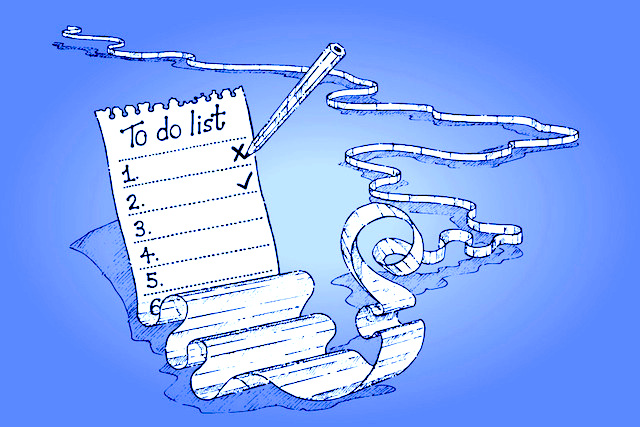
“As soon as you honor the present moment, all unhappiness and struggle dissolve, and life begins to flow with joy and ease. When you act out the present-moment awareness, whatever you do becomes imbued with a sense of quality, care and love—even the most simple action.” ~Eckhart Tolle
As a young girl I danced a lot. I really loved it and so learned every style of dancing available at my dance school (and took up more and more of my mom’s time driving me back and forth to class and making untold numbers of dance costumes for me).
Around my fifteenth birthday, all of that practice and enthusiasm came into its own and I was featured in seventeen of the dances being performed in the annual concert.
There were less than thirty dances in the entire production, so the logistics around making it all happen was pretty intense. (We’re talking side of stage costume changes and Mom planning every move with military precision.)
There are two things I remember simultaneously from that time: I loved it, and that any fear I had about being able to pull it off was squashed deep in my subconscious. I simply didn’t allow myself to feel the fear.
This combination meant that the entire experience was a great success.
It wasn’t, however, a healthy success.
With the benefit of twenty-five years worth of hindsight, I’m able to look back on that time now and see the overwhelm I suppressed.
It wasn’t the number of dances that was overwhelming. My body danced as naturally as it walked, and as soon as the music played, it knew what to do. I also knew that if I wasn’t entirely present on stage I would lose the attention of the audience.
Even at that age, I intuitively knew that the power of the performance was in my ability to be entirely present. In that regard, I could have danced for double or triple the time I did on that day and felt completely invigorated at the end of it.
That didn’t happen, though, because between each performance I was unconsciously draining my energy.
You see; I didn’t know how to carry that stage presence into the rest of my life. And so the minute the music stopped, my mind resumed its constant barrage of self-criticism.
I was afraid of disappointing people, I was afraid of not being perfect, I was afraid of making a mistake.
If I’d been able to drop all of that inner dialogue, I would have performed those seventeen dances with ease. It wouldn’t have felt too much.
I wouldn’t have had any overwhelm to suppress. I would have been able to experience the exhilaration fully.
Instead, my exhilaration was stunted. Kept in check by fear.
The thing about fear is that it dissipates in the face of presence. There’s simply no space for it when you bring your full self to a task.
I didn’t feel the fear while dancing because I was present. During some of the quicker costume changes I didn’t feel any fear because I absolutely had to be present in order to get back on that stage immediately, fully dressed without a sequin out of place.
When I did have the luxury of a full dance or two to prepare for the next performance, I’d get critical; “My hair’s not right,” “Can I really remember what I’m supposed to be doing next?,” “I’m just not happy with the way I approached that last sequence…”
Each time, before I stepped back onto the stage I knew I had to stop. Become still. Find my presence again. Thankfully I did. But wouldn’t it have been nice if I been able to maintain a steady, mindful presence through the entirety of the two hours and not just when I was on stage?
Sometimes quantity isn’t the problem. We’re all constantly complaining about too many emails, too many items on our to do list, too many social commitments.
Sometimes it’s simply about the presence and mental quietude you bring to the myriad tasks that make up your day.
Perhaps rather than learning how to manage our tasks more efficiently or to say no to every opportunity that comes our way (which are useful things to learn, of course) we’d all benefit from starting first with the mental clutter of our minds.
With clearing the stories, the judgments, the criticisms we’re repeating over and over like broken records.
Perhaps rather than suppressing them, we start to acknowledge them. We send love to our fears. We recognize their role in trying to keep us safe and then act from there.
There’s a vast difference between acting from compassion and understanding, and acting from a reservoir of suppressed fear. You may well still achieve your goals by suppressing your fear, but at what cost?
After all, our goals are never really all we want, are they? We want to feel good, great, amazing, exhilarated when we achieve them.
And that, friends, is only made possible through our constant willingness to bring ourselves completely into the present moment. To drop the assessment of what is and what isn’t, and to simply allow all to be, without thought of what’s coming next or memory of what came before.
Just here. Just now. Being and allowing.
To-do list image via Shutterstock
About Samantha Nolan-Smith
Samantha Nolan-Smith is a business alignment coach supporting women to find freedom, abundance and purpose through soul-centred entrepreneurship. She’s the founder of The Freedom Collective, an online community of entrepreneurs and creatives building their businesses from the inside out using her signature ‘Business by the Chakras’ approach.












 Though I run this site, it is not mine. It's ours. It's not about me. It's about us. Your stories and your wisdom are just as meaningful as mine.
Though I run this site, it is not mine. It's ours. It's not about me. It's about us. Your stories and your wisdom are just as meaningful as mine.
This is great, Samantha! And, busted on this end 🙂 I especially love: “we’d all benefit from starting first with the mental clutter of our minds.
With clearing the stories, the judgments, the criticisms we’re repeating over and over like broken records.”
That’s the crux of it, no? Thank you for this reminder!
My pleasure! Glad you enjoyed it and yes – that’s definitely the crux of it 🙂
absolutely true. and well written…i have the same experience.. we all are gonna succeed in achieving our goal but what matters is the time and when..?? and this is the place where fear attacks most.
I completely agree Mahesh.
Thanks for this thought-provoking essay. I do agree that being
present here and now is the most important, while dealing with an overwhelming
To Do List. The heightened awareness helps us tackle any problem better. But
there are a few other techniques, which we can never afford to forget while
facing a bewildering array of tasks. For e.g. Efficient Time Management, Pruning
the Tasks before Taking up, Improving the Operational Systems, Prioritization
of Pending Tasks, and Learning to say No when Required, may be mentioned.
Absolutely! My sense though is that there’s a lot of time taken up teaching people these things without talking about the value of being truly present.
Best article I’ve read in years! Thank you.
Great to hear Meee
Samantha, I really enjoyed this post. You’re absolutely right in that if you’re present in the situation, you’ll be able to tackle a full schedule and the most (seemingly) impossible tasks. As you mention in a comment below, being present isn’t that often linked to productivity or time management. I do believe, however, that it’s something that’s on its way into the discussion (for example this article demonstrates just that) 🙂
So glad you enjoyed it Camilla!
Good article. Living in the moment (or being present) isn’t as hard as people make it sound. Isn’t as hard as I used to think it was. All you have to do is BE. It’s the easiest thing in the world. Acknowledge, don’t suppress, your thoughts but choose to be live instead of get caught up in your own mind.
Exactly Brenna! Being is our natural state. We’ve just been taught out of it. Watch the babies, is what i tell people sometimes. They’re just having out in a state of beingness all day long 🙂
Having too much work is the new normal 🙂
How well we manage our daily tasks prioritizing as per immediate needs and focusing on to complete all thats on out plate in the new routine. Always trying to find a cut through apporach to quickly finish up the chores and able to deliver what the expectation is sometimes make you infertile.
Absolutely! That’s what inspired me to write the article – to give people the chance to realise that the volume isn’t always/ever the problem. It’s the mental activity that accompanies that.
There’s also a rhythm to productivity which we have to follow if we’re going to be really effective and that definitely includes stopping completely.
Such a beautiful and timely post. Thank you for sharing your wisdom, Samantha